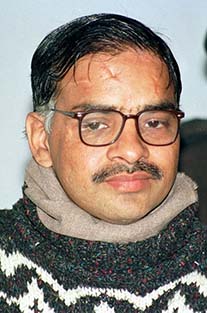
Javed Iqbal: The Case That Shook Lahore
Javed Iqbal, also known as the “Monster of Lahore,” was a convicted serial killer whose crimes against children shocked Pakistan and the world. This article will explore Iqbal’s life, his criminal activities, the investigation, trial, and the lasting impact on the community.
Background
Born in 1961 in Lahore, Pakistan, Iqbal came from an affluent family. Information about his early life is limited, but it is believed that he may have had a troubled childhood.
Crimes
Iqbal’s crimes began to surface in the late 1990s, when he was found to have targeted street children in Lahore. He exploited their vulnerability, luring them with promises and gifts, he would then kidnap, rape then murder the children. His method of disposing of the evidence was systematic and calculated, which allowed him to evade authorities for some time, he would dismember, the dissolve the body pieces in hydrochloric acid and finally dump the remaining liquid in a nearby sewer.
The Confession
In an unprecedented move, Iqbal sent a detailed letter to a local newspaper and the police, confessing to his crimes. His confession was articulate and devoid of remorse, making it all the more unsettling. He claimed his actions were in retaliation against perceived wrongs done to him by the police.
Investigation and Arrest
The confession triggered a massive manhunt, leading to Iqbal’s arrest and the discovery of evidence at his residence. He was subsequently charged and put on trial, along with his accomplices.
Trial and Sentencing
Iqbal’s trial was conducted swiftly due to the clear evidence against him and the public demand for justice. He was found guilty and sentenced to death in a manner reflecting his crimes, a sentence that was symbolic more than practical.
Death and Aftermath
Before his sentence could be executed, Iqbal was found dead in his prison cell, along with one of his accomplices, in October 2001. The circumstances surrounding his death have been a subject of controversy, leading to further discussions and debates.
Impact and Legacy
Javed Iqbal’s case brought attention to the plight of street children and the failures in the system to protect the vulnerable. It led to discussions on legal reform and a societal reflection on the broader issues that allowed such crimes to occur.
The case of Javed Iqbal remains a haunting and complex chapter in criminal history. It serves as a stark reminder of human vulnerability and the importance of vigilance in protecting society’s most defenseless members. The lessons learned from this case continue to resonate and contribute to ongoing dialogues on justice, child protection, and societal responsibility.
